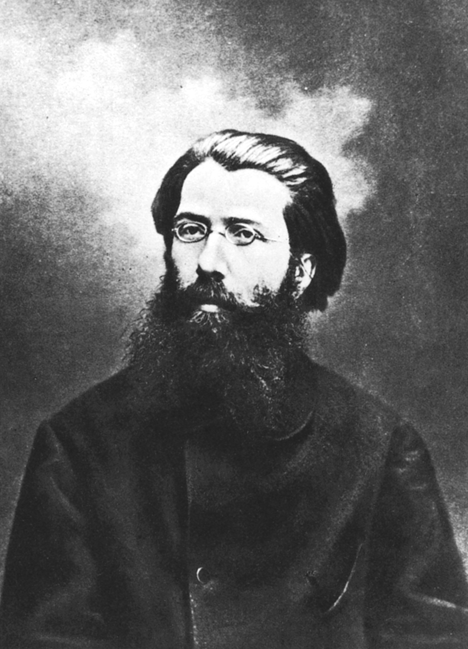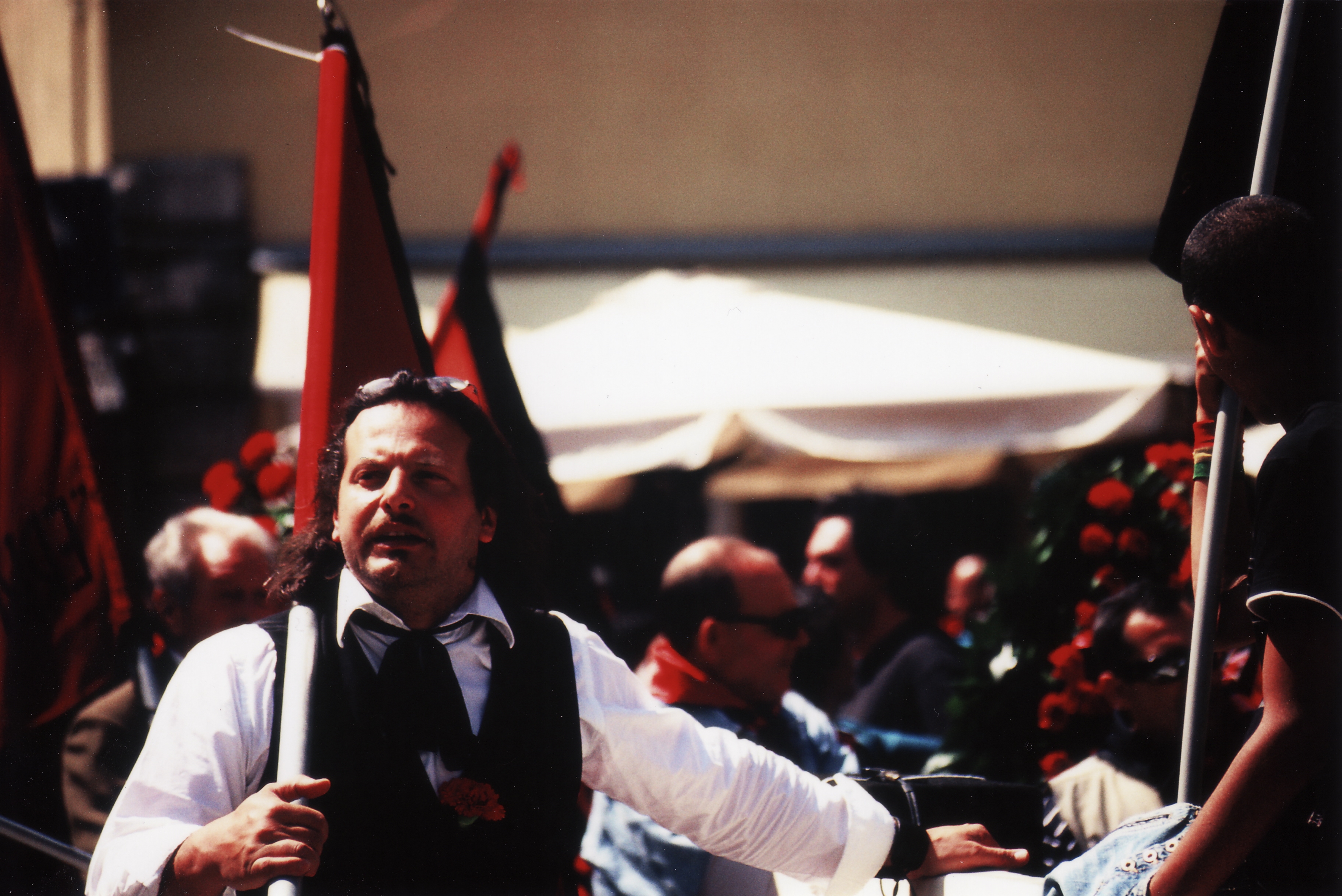|
Joseph Jas-Béala
Joseph Jas-Béala, nicknamed 'Béala', (15 August 1865 in Firminy-17 June 1940 in Lyon), was a mechanician, activist and individualist illegalist anarchist terrorist. Béala actively participated in the Saint-Germain bombing, an attack that plunged France and Europe into the Era of Attacks (1892–1894). Arrested with his accomplices Ravachol, Rosalie Soubère and Charles Simon, he was acquitted by the jury. He was repeatedly brought to trial by the state, facing a new trial after each acquittal. Béala was acquitted three times in total before being sentenced to one year in prison during his fourth trial, this time for harboring Ravachol. Biography Joseph Marius Jas-Béala was born in Firminy on 15 August 1865. His mother's name was Marie Déléage, and his father, Joseph Jas-Béala, shared the same name as him. His father worked as a hammerer. Joseph avoided military service due to having flat feet and worked as a mechanic and fitter. In a relationship with the anarchist acti ... [...More Info...] [...Related Items...] OR: [Wikipedia] [Google] [Baidu] |
Firminy
Firminy (; ) is a commune in the Loire department in central France. It lies on the river Ondaine, 13 km southwest of Saint-Étienne by rail. History The ancient name of the town was ''Firminiaco'' or ''Firminiacus'' (lit. "place of Firmin"). The name was first recorded in a 971 charter by the King of Burgundy. Firminy had historically important coalmines known since the 14th century and extensive manufactures of iron, steel, and aluminum goods, including railway material, machinery and cannon. Fancy woolen hosiery was also manufactured. In 1959, Firminy absorbed the former commune Chazeau. '' |
Soisy-sur-Seine
Soisy-sur-Seine (, literally ''Soisy on Seine'') is a commune in the Essonne department in Île-de-France in northern France. Population Inhabitants of Soisy-sur-Seine are known as ''Soiséens'' in French. See also *Communes of the Essonne department The following is a list of the 194 communes of the Essonne department of France. The communes cooperate in the following intercommunalities (as of 2025):Official website Mayors of Essonne Association Communes of Essonne {{Essonne-g ... [...More Info...] [...Related Items...] OR: [Wikipedia] [Google] [Baidu] |
Illegalists
Illegalism is a tendency of anarchism that developed primarily in France, Italy, Belgium and Switzerland during the late 1890s and early 1900s as an outgrowth of individualist anarchism. Illegalists embrace criminality either openly or secretly as a lifestyle. Illegalism does not specify the type of crime, though it is associated with theft and shoplifting. Some anarchists, like Clément Duval and Marius Jacob, justified theft with theories of individual reclamation () and propaganda of the deed and saw their crime as an educational and organizational tool to facilitate a broader resistance movement. Others, such as Jules Bonnot and the Bonnot Gang, saw their actions in terms of egoist anarchism and referred to the philosophy of Max Stirner. Influenced by theorist Max Stirner's egoism, some illegalists in France broke from anarchists. They argued that their actions required no moral basis and illegal acts were taken not in the name of a higher ideal, but in pursuit of one's ... [...More Info...] [...Related Items...] OR: [Wikipedia] [Google] [Baidu] |
Propaganda Of The Deed
Propaganda of the deed, or propaganda by the deed, is a type of direct action intended to influence public opinion. The action itself is meant to serve as an example for others to follow, acting as a catalyst for social revolution. It is primarily associated with acts of violence perpetrated by proponents of insurrectionary anarchism in History of anarchism, the late 19th and early 20th century, including bombings and assassinations aimed at Statism, the state, the ruling class in a spirit of anti-capitalism, and church arsons targeting religious groups, even though propaganda of the deed also had nonviolent resistance, non-violent applications. These acts of terrorism were intended to ignite a "spirit of revolt" by demonstrating the state, the middle and upper classes, and religious organizations were not omnipotent as well as to provoke the State to become escalatingly repressive in its response. The 1881 London Social Revolutionary Congress gave the tactic its approval. Theore ... [...More Info...] [...Related Items...] OR: [Wikipedia] [Google] [Baidu] |
Anarchist Assassins
Anarchism is a political philosophy and movement that seeks to abolish all institutions that perpetuate authority, coercion, or hierarchy, primarily targeting the state and capitalism. Anarchism advocates for the replacement of the state with stateless societies and voluntary free associations. A historically left-wing movement, anarchism is usually described as the libertarian wing of the socialist movement (libertarian socialism). Although traces of anarchist ideas are found all throughout history, modern anarchism emerged from the Enlightenment. During the latter half of the 19th and the first decades of the 20th century, the anarchist movement flourished in most parts of the world and had a significant role in workers' struggles for emancipation. Various anarchist schools of thought formed during this period. Anarchists have taken part in several revolutions, most notably in the Paris Commune, the Russian Civil War and the Spanish Civil War, whose end marked the en ... [...More Info...] [...Related Items...] OR: [Wikipedia] [Google] [Baidu] |
French Anarchists
Anarchism in France can trace its roots to thinker Pierre-Joseph Proudhon, who grew up during the Restoration and was the first self-described anarchist. French anarchists fought in the Spanish Civil War as volunteers in the International Brigades. According to journalist Brian Doherty, "The number of people who subscribed to the anarchist movement's many publications was in the tens of thousands in France alone." History The origins of the modern anarchist movement lie in the events of the French Revolution, which the historian Thomas Carlyle characterized as the "open violent Rebellion, and Victory, of disimprisoned Anarchy against corrupt worn-out Authority". Immediately following the storming of the Bastille, the communes of France began to organize themselves into systems of local self-government, maintaining their independence from the State and organizing unity between communes through federalist principles. Direct democracy was implemented in the local districts of eac ... [...More Info...] [...Related Items...] OR: [Wikipedia] [Google] [Baidu] |



